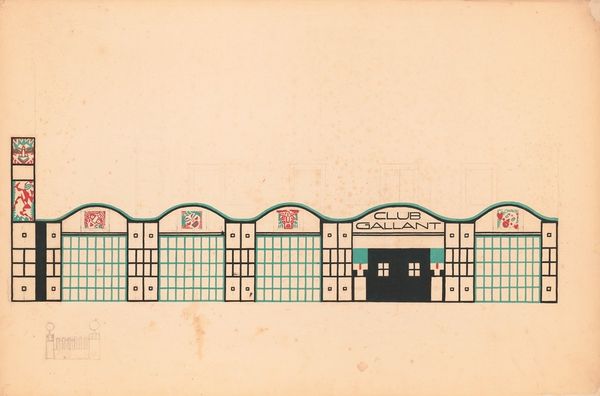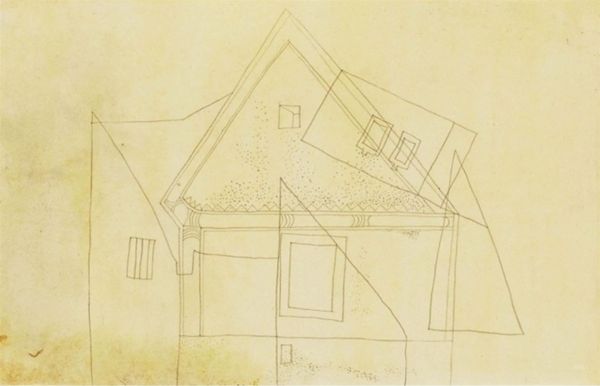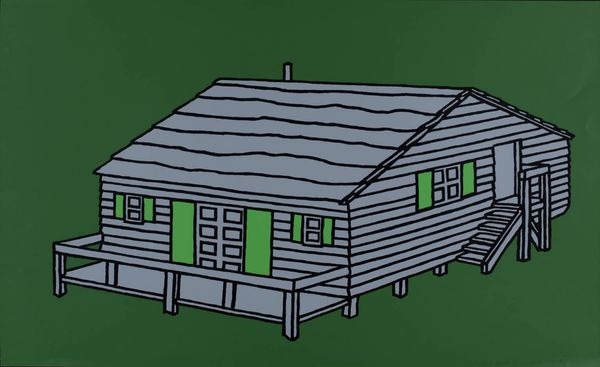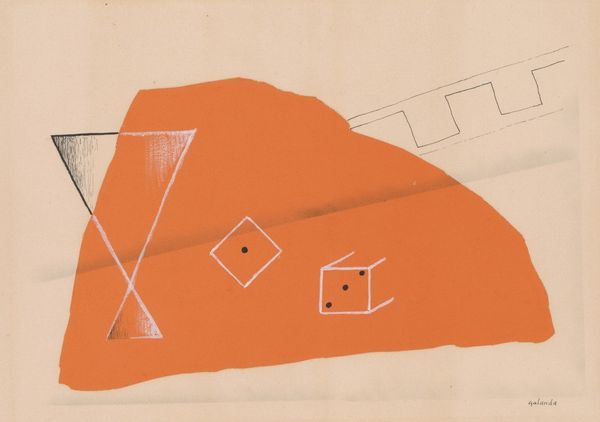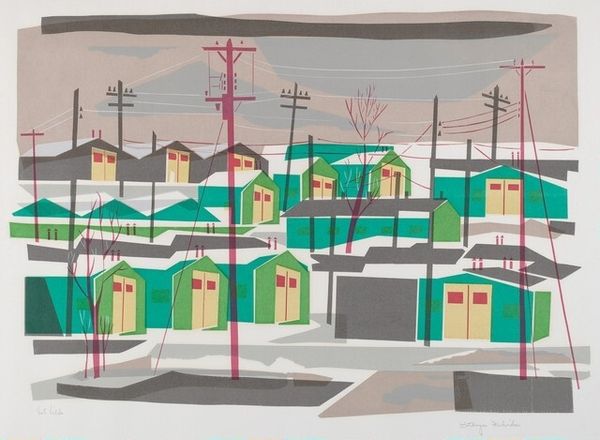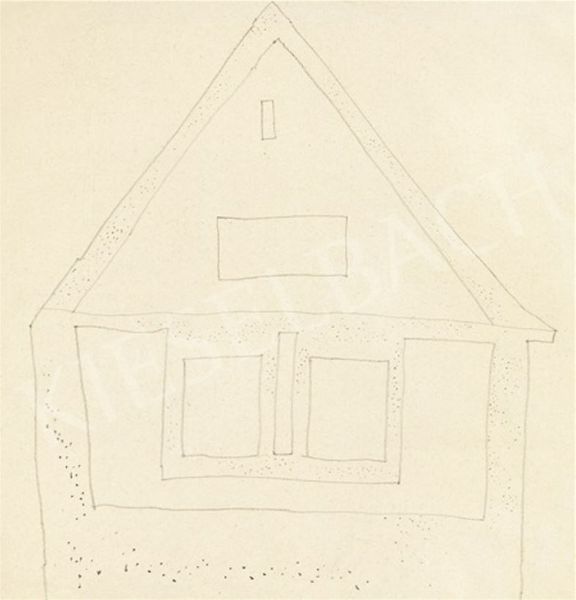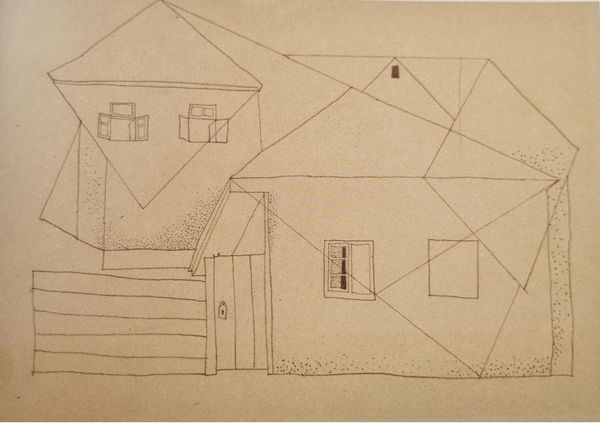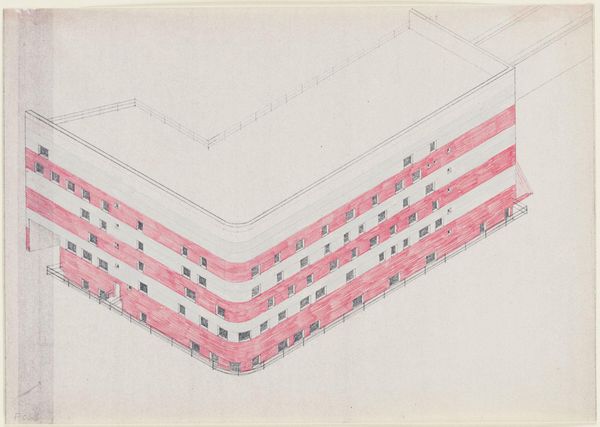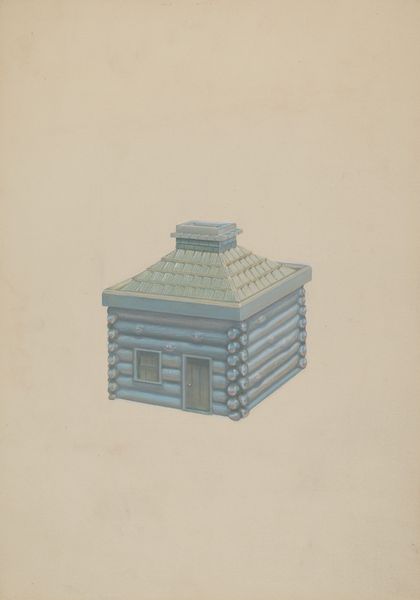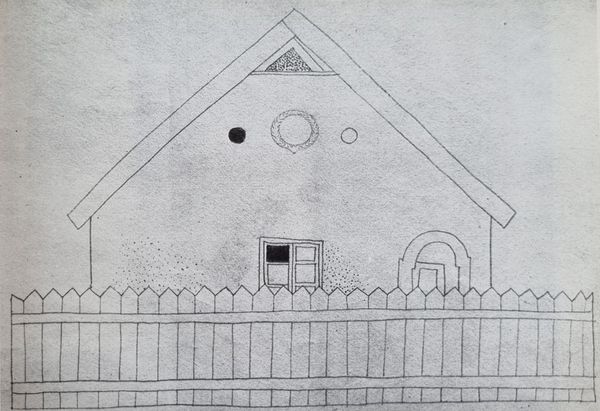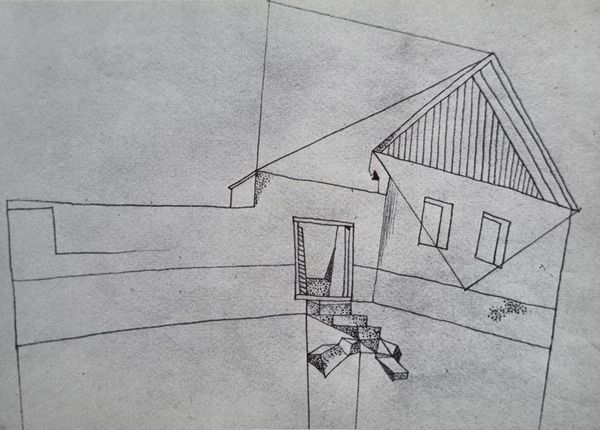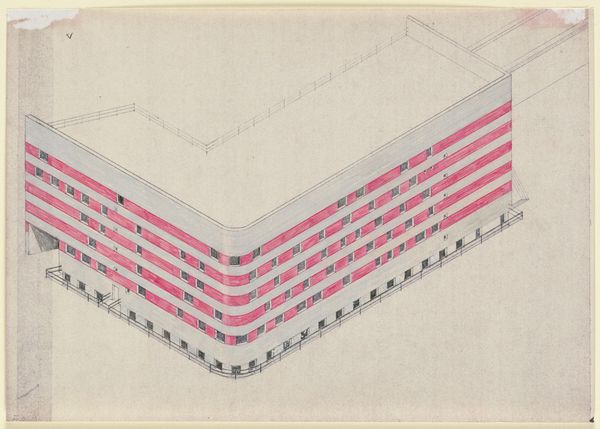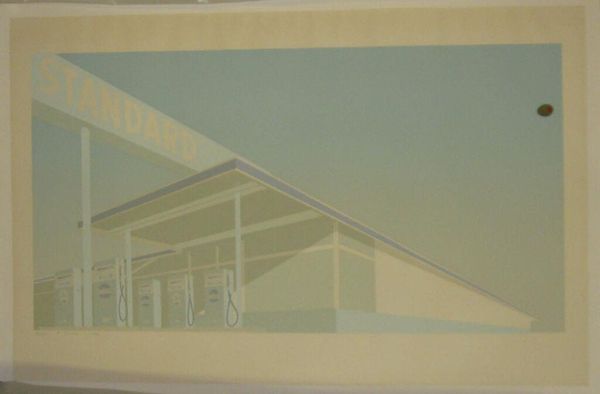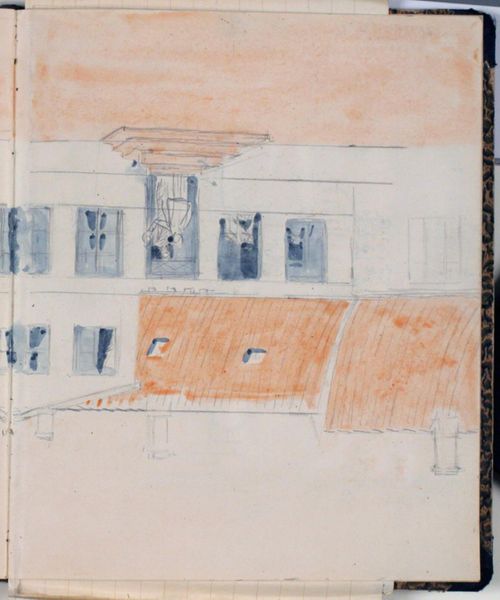![[Designs for roadhouse or terrace restaurant.] [Scheme [B] with a T-plan, 5- bays, with painted tulips in the pediments. by Winold Reiss](/_next/image?url=https%3A%2F%2Fd2w8kbdekdi1gv.cloudfront.net%2FeyJidWNrZXQiOiAiYXJ0ZXJhLWltYWdlcy1idWNrZXQiLCAia2V5IjogImFydHdvcmtzL2RmNGZiYjlhLWIxM2ItNGRlNi05MGRkLTcxMmVjN2FlNzMyYi9kZjRmYmI5YS1iMTNiLTRkZTYtOTBkZC03MTJlYzdhZTczMmJfZnVsbC5qcGciLCAiZWRpdHMiOiB7InJlc2l6ZSI6IHsid2lkdGgiOiAxOTIwLCAiaGVpZ2h0IjogMTkyMCwgImZpdCI6ICJpbnNpZGUifX19&w=3840&q=75)
[Designs for roadhouse or terrace restaurant.] [Scheme [B] with a T-plan, 5- bays, with painted tulips in the pediments. 1910
0:00
0:00
drawing, mixed-media, paper, architecture
#
drawing
#
mixed-media
#
art-nouveau
#
blue ink drawing
#
green and blue tone
#
paper
#
geometric
#
letter design
#
cityscape
#
architecture
Copyright: Public Domain: Artvee
Editor: We're looking at "Designs for roadhouse or terrace restaurant," a mixed-media drawing on paper from 1910 by Winold Reiss. There's something quite austere, almost utopian, about this T-plan building. How do you interpret this work, especially given its architectural focus? Curator: What strikes me is the intentionality behind such planning in 1910. Who was being included in this vision of public space, and, just as crucially, who was being excluded? This roadhouse design emerges during a period of intense social stratification and segregation, so its potential as either a progressive or oppressive space is something we must examine. Does the geometric regularity suggest a utopian impulse or perhaps something more… regimented? Editor: I see what you mean. The stylised tulips feel like a decorative element that clashes a little with the austerity of the structure itself, like an imposed ideal. Curator: Exactly. What societal values are encoded within these aesthetic choices? How does the promise of leisure and communal dining interact with the socio-political climate of the time? This era witnessed fervent debates around class, access, and even the very definition of "public" in public spaces. Thinking about it this way, it encourages us to examine whose narratives were being physically built into the landscape, and whose were being marginalized or erased. Editor: It’s fascinating how a seemingly simple architectural sketch can open up so many avenues for discussing social history. Thanks for showing me the importance of seeing art within a larger social frame! Curator: And thank you for prompting that line of thought. It is crucial to question those elements that are right in front of us to unpack power dynamics within artwork and society alike.
Comments
No comments
Be the first to comment and join the conversation on the ultimate creative platform.
